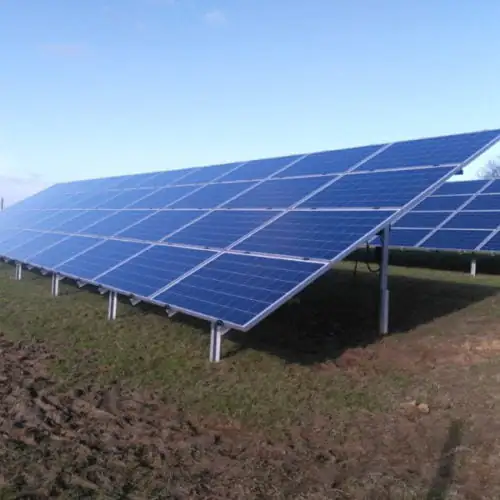Commercial Solar System & Power Plant Subsidies
A residential solar power system uses the Sun's plentiful energy to generate electricity. It offers homeowners a clean, sustainable energy alternative while decreasing their dependency on traditional grid-based electricity. In this section, we will look at the components, benefits, and considerations of a residential solar power system.

Benefits of a Commercial Solar System
-
Cost Savings: One of the primary benefits of a commercial solar system is the potential for significant cost savings on energy bills. By generating their own electricity, businesses can reduce their reliance on grid power, leading to long-term financial savings.
-
Reduced Operational Expenses: Commercial solar systems provide businesses with a fixed and predictable energy cost over the long term. This stability can help in budgeting and financial planning, reducing operational expenses associated with fluctuating energy prices.
-
Environmental Sustainability: By transitioning to solar energy, businesses can significantly reduce their carbon footprint. Solar power is a clean and renewable energy source that produces no greenhouse gas emissions during operation, contributing to a more sustainable future.
-
Brand Image and Corporate Social Responsibility: Embracing solar energy demonstrates a commitment to environmental stewardship and corporate social responsibility. It can enhance a business's brand image, attract environmentally conscious customers, and align with sustainability goals.
-
Government Incentives and Tax Benefits: Many governments offer incentives and tax benefits for businesses that invest in renewable energy, including commercial solar systems. These incentives can help offset the initial installation costs and improve the return on investment.
Components of a Commercial Solar System
-
Solar Panels: Photovoltaic (PV) solar panels are the foundation of a commercial solar system. They consist of multiple solar cells that convert sunlight into direct current (DC) electricity. These panels are typically installed on rooftops or in open spaces, depending on the available area.
-
Inverters: Inverters play a crucial role in a commercial solar system by converting the DC electricity generated by the solar panels into alternating current (AC) electricity, which is used by businesses and commercial establishments.
-
Mounting Structures: Mounting structures, such as rooftop racks or ground-mounted systems, securely hold the solar panels in place. These structures are designed to withstand various weather conditions and ensure optimal solar panel orientation for maximum energy generation.
-
Monitoring and Control Systems: Commercial solar systems often include monitoring and control systems to track energy production, monitor system performance, and identify any potential issues. These systems provide valuable data for optimizing energy efficiency and troubleshooting.
-
Electrical Components and Wiring: Electrical components, including wiring, switches, and circuit breakers, are essential for the safe and efficient operation of the commercial solar system. They ensure proper connection and distribution of electricity throughout the facility.
Commercial System Installation in India
In practically every state in India, we have completed over 2000 solar projects and installed over 750 commercial solar systems. Our solar business installation clients are delighted and have no complaints or regrets. The installation of a 50kW solar system at various locations is shown below.

Considerations for Implementing a Commercial Solar System
-
Energy Consumption Analysis: Conducting a thorough analysis of the business's energy consumption patterns is essential to determine the appropriate size and capacity of the commercial solar system. Understanding peak demand and load profiles can help optimize system design.
-
Site Assessment: Assessing the available space, roof condition, shading, and structural considerations is crucial to determine the feasibility and optimal placement of the solar panels. A professional solar installer can conduct a site assessment to ensure the system's efficiency.
-
Financial Analysis and ROI: Conducting a financial analysis, including the return on investment (ROI) calculation, helps businesses assess the economic viability of a commercial solar system. Factors such as installation costs, energy savings, incentives, and payback periods should be considered.
-
Regulatory Compliance: It is important to comply with local regulations, building codes, and permit requirements when installing a commercial solar system. Working with a reputable solar installer who is knowledgeable about local regulations can streamline the process.
-
Maintenance and Warranty: Understanding the maintenance requirements and warranty terms of the solar system is crucial. Regular maintenance, such as panel cleaning and system inspections, ensures optimal performance and longevity.
